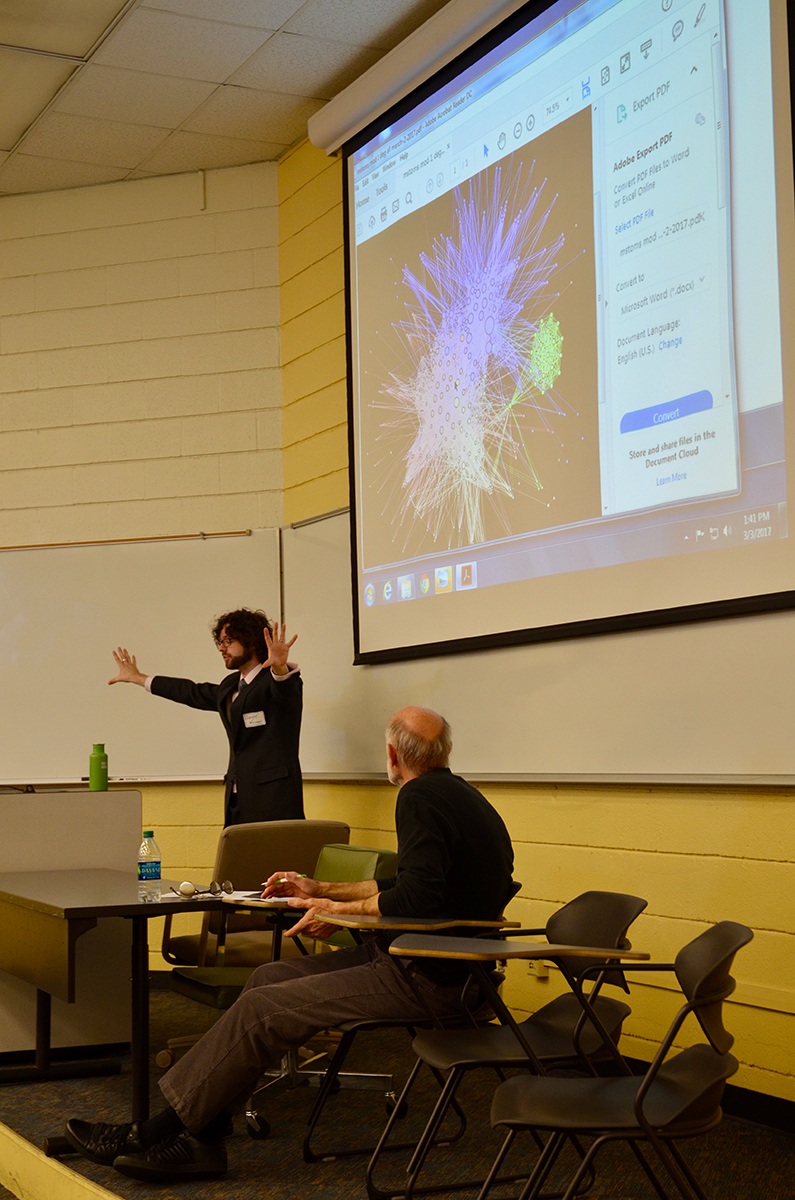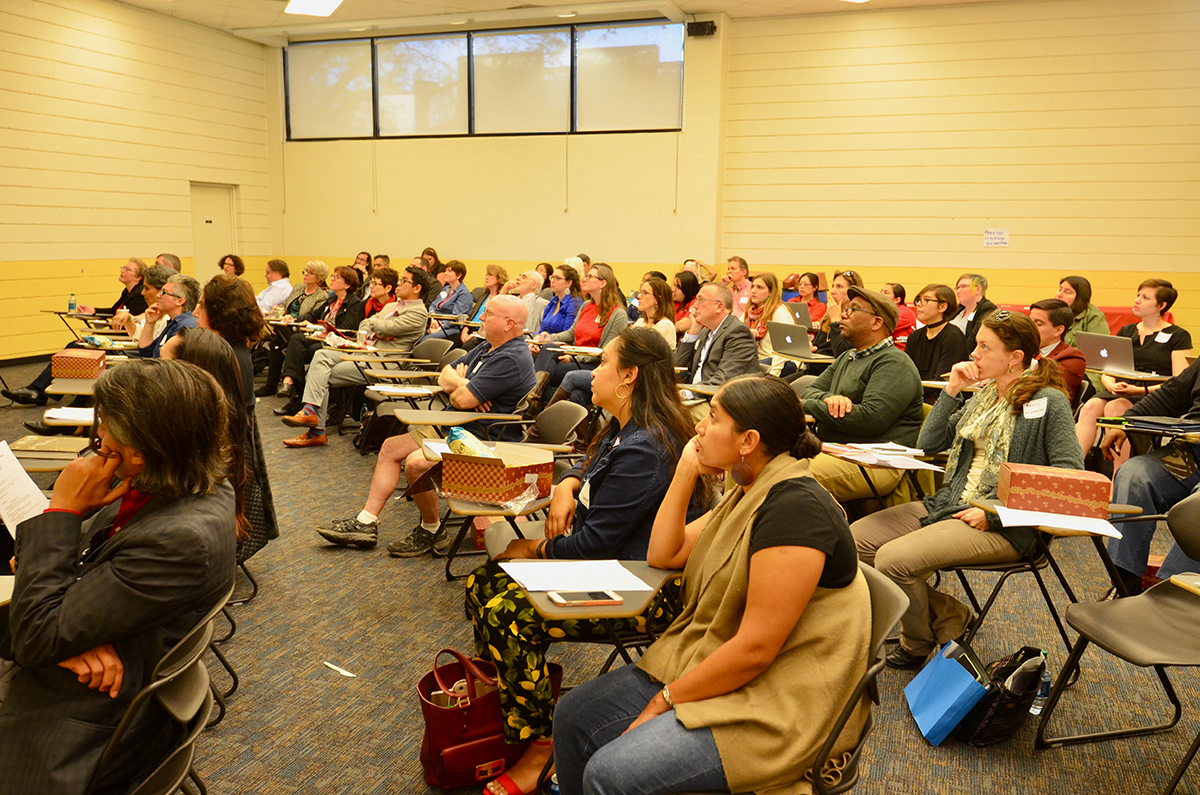
When traditional humanities intersect with modern technology, the result is digital humanities. This burgeoning research method allows academics to use digital tools in their pursuit of humanities exploration and inquiries.
The University of Houston College of Liberal Arts and Social Sciences hosted a collaborative digital humanities workshop last month. At the workshop, attendees discussed the digital humanities projects currently underway at UH, and learned about the numerous digital humanities resources available at the university.
Dr. Claude Willan, a research associate and digital humanities scholar at the Center for Digital Humanities at Princeton University, served as the event’s keynote speaker. The digital humanities steering committee, organized by Dr. Peggy Lindner, research assistant professor at the UH Honors College and the Center for Advanced Computing and Data Systems (CACDS), and Dr. James Kastely, professor English, coordinated the event.
Dr. Kristina Neumann, assistant professor of history, was one of the presenters at the workshop.
“At UH, many of our different centers and colleges are realizing the need for cross-disciplinary forums and this workshop was one important manifestation of this effort,” says Dr. Neumann. “Digital humanities help us break out of our academic silos, something that is increasingly important in the 21st century educational system. Digital humanities also offer a different set of tools, methodologies, and theories to help us answer longstanding humanistic questions or even pose new ones.”
Dr. Neumann herself is a digital humanities scholar who is currently collaborating with Dr. Lindner, to launch an interactive, public exhibition titled, “Finding Connection in Ancient Syria.”

“Unlike the war-torn country in today’s news, ancient Syria was defined both as a prominent crossroads between east and west, and by the great multiculturalism of its diverse peoples,” says Dr. Neumann.
For Dr. Neumann, researching ancient Syria has been challenging for a number of reasons - the ongoing Syrian War, destruction in the region by ISIS, and the limited availability of archaeological and textual resources. However, digital humanities have allowed her to make great strides in her research despite the current conflict taking place in Syria.
To demonstrate the ancient prominence of Syria, the researchers decided to ‘follow the money’. Dr. Neumann used modern technology to map the distribution and exchange of over 100,000 ancient coins found in the region as a way to reconstitute patterns of political, economic, and socio-cultural exchange. Dr. Neumann and her collaborators’ usage of Google Earth and interactive data visualization software, among other tools, has been well received among their professional peers at academic conferences and in periodicals.
CLASS has many more faculty members and students who conducting innovative research through digital humanities. A sampling of those projects include:
Dr. Paul Butler, associate professor of English - rhetoric and writing in the digital age
Dr. Edie Furniss, assistant professor in the departments of Hispanic studies and modern and classical languages - compiling a corpus of early 20th-century U.S. anarchist newspapers written in Spanish, for linguistic and historical analysis
Dr. Casey Due Hackney, professor of modern and classical languages – serves as an editor of the Homer Multitext project, which seeks to present the Homeric Iliad and Odyssey in a critical framework that accounts for the fact that these poems were composed orally over the course of hundreds, if not thousands of years by countless singers who composed in performance
Dr. Todd Romero, associate professor of history – as part of a revamping of a U.S. history course, he put together an interactive display of previously enslaved Houstonians
Dr. Abdel Takriti, associate professor & Arab-American Educational Foundation Chair in Modern Arab History - launched a collaborative bilingual (Arabic/English) online learning resource that explores Palestinian revolutionary practice and thought from the Nakba of 1948, to the siege of Beirut in 1982
Dr. Carolina Villarroel, Brown Foundation Director of Research at UH, and Dr. Gabriela Baeza Ventura, associate professor of Hispanic literature – Recovering the U.S. Hispanic Literary Heritage Project for the DH Center for Latina/o Studies Project.
Dr. Nancy Beck Young, professor of history, and Dr. Leandra Zarnow, assistant professor of history - will launch a digital public history project and open archive in commemoration with a November 6-7 symposium they are planning
According to Dr. Neumann, digital humanities invites creative, out-of-the-box thinking and welcomes collaboration across multiple disciplines. The digital aspect also allows for a wider dissemination of information to both academic and public audiences.
“The emphasis isn’t on the ‘wow factor’ of the technology, but how that technology can help us continue to do our work in the humanities and push our fields forward,” says Dr. Neumann.